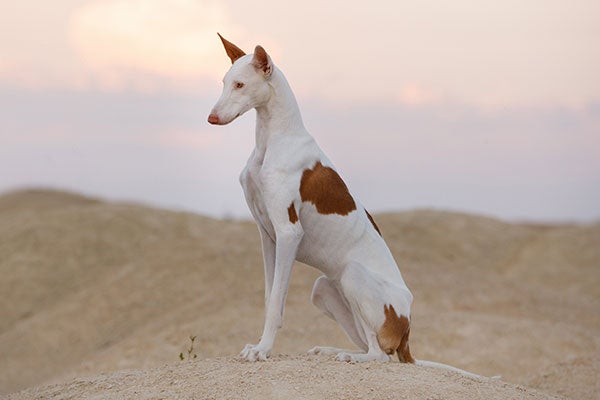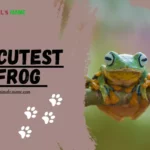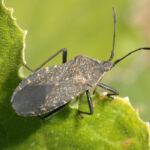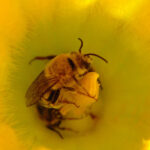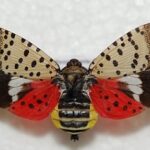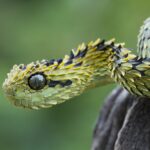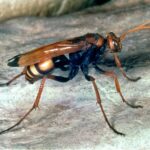In our ongoing exploration of various animals, today’s focus is on the Ibizan Hound. These fascinating creatures have a rich history and are known for their unique characteristics. If you’ve been following our blog, you’ll know that we already have an article on 155+ animals, but the Ibizan Hound deserves a closer look.
The Ibizan Hound is a breed of dog that boasts an interesting past, with origins dating back thousands of years. We’ll delve into their history and uncover some intriguing facts about them. You’ll also learn about their size, habitat, and classification, which are essential aspects to understand these graceful animals better. So, let’s embark on this journey to explore the world of the Ibizan Hound and gain a deeper appreciation for the diversity of the animal kingdom.
History of Ibizan Hound
The Ibizan Hound is a breed of dog that has a long and interesting history. It is believed to have originated in the Mediterranean island of Ibiza, which is located off the coast of Spain. The breed has been around for centuries and has played various roles throughout its history.
In the past, the Ibizan Hound was primarily used for hunting. Its slender and agile body made it well-suited for chasing down small game such as rabbits. The breed was highly valued for its hunting abilities, and it was often used by the nobility for hunting expeditions. Over time, however, the Ibizan Hound’s role began to change.
As society shifted and hunting became less popular, the Ibizan Hound’s purpose shifted as well. It began to be seen more as a family pet rather than a hunting companion. The breed’s gentle and friendly nature made it a great choice for families, and its unique appearance made it a popular choice for dog shows. Today, the Ibizan Hound can be found in homes all over the world, loved for its loyal and affectionate personality.
In summary, the Ibizan Hound has a long and diverse history. From its origins as a hunting dog to its present role as a beloved family pet, this breed has adapted and evolved throughout the years. Its graceful build and friendly nature have won over the hearts of many, making it a popular choice for both hunters and families alike.
Importance of Ibizan Hound
The Ibizan Hound is an important animal for several reasons. First, it has a unique appearance that makes it stand out from other dog breeds. With its tall, slender body and long legs, it is a graceful and elegant sight to behold. This distinctiveness contributes to the diversity and beauty of the animal kingdom.
Second, the Ibizan Hound possesses exceptional athletic abilities. It is a skilled hunter, known for its agility and speed. This makes it highly valuable in various activities such as lure coursing and dog racing. Its abilities also make it an excellent companion for active individuals or families who enjoy outdoor adventures and exercise.
Lastly, the Ibizan Hound is an intelligent and friendly breed. It is known to be loyal, gentle, and good-natured. This makes it a great pet for people of all ages, including children. Its friendly disposition allows for easy bonding and creates a positive and loving atmosphere in homes where it resides.
In conclusion, the Ibizan Hound is an important animal due to its unique appearance, exceptional athleticism, and friendly nature. It adds diversity and beauty to the animal kingdom, while also serving as a loyal and loving companion to individuals and families alike.
Amazing Facts About Ibizan Hound
1. The Ibizan Hound is a breed of dog that originated in the Spanish island of Ibiza.
2. It is known for its unique appearance and elegant physique, with a slim and athletic build.
3. These hounds are quite tall, standing at an average height of 22 to 28 inches (56 to 71 centimeters) at the shoulder.
4. They have a short and smooth coat that comes in various colors including white, red, and tan.
5. The Ibizan Hound has large and erect ears that are their most distinct feature, giving them a keen sense of hearing.
6. They are highly skilled hunters and have been traditionally used for rabbit hunting due to their exceptional speed and agility.
7. Despite their hunting instincts, Ibizan Hounds can also be wonderful family pets, known for their gentle and loyal nature.
8. They are great with children and get along well with other dogs if properly socialized from a young age.
9. Ibizan Hounds are intelligent dogs and quick learners, making them relatively easy to train.
10. Regular exercise is important for this breed as they require opportunities to run and play to keep them mentally and physically stimulated.
11. Due to their slim build and short coat, Ibizan Hounds may be sensitive to cold weather and may require extra protection in colder climates.
12. This breed is generally healthy, but they can be prone to certain genetic health issues such as hip dysplasia and certain eye conditions.
13. Ibizan Hounds have a lifespan of about 11 to 14 years on average.
14. They are generally low maintenance when it comes to grooming, as their smooth coat only needs occasional brushing to remove loose hair.
15. The Ibizan Hound is still a relatively rare breed outside of their native region, but their unique beauty and charming personality make them a popular choice for dog lovers around the world.
Can we keep Ibizan Hound as our Pet?
The Ibizan Hound is a beautiful and elegant breed of dog that some people may consider as a pet. However, it is important to note that the Ibizan Hound is not suitable for everyone. This breed requires a lot of exercise and mental stimulation to remain happy and healthy. They also have a strong prey drive and may chase after small animals, so caution must be taken if you have other pets or live in an area with wildlife.
Unfortunately, the Ibizan Hound is not extinct. Extinction means that a species no longer exists. However, it is true that some dog breeds are becoming less common or even endangered due to various reasons, such as a decline in their natural habitat, low breeding rates, or other factors. It is important to protect and preserve these endangered breeds to ensure their continued existence.
If a certain breed of animal, like the Ibizan Hound, were to become extinct, it would be a great loss to our world. Extinction means that they would no longer be found anywhere on Earth, and we wouldn’t be able to keep them as pets. It is crucial to protect and conserve these animals and their habitats, so future generations can appreciate their beauty and unique characteristics.
In conclusion, while the Ibizan Hound is still around and can be considered as a pet, we must be ready to fully commit to their specific needs and ensure their well-being. As responsible pet owners, it is important to understand the requirements of any breed before deciding to bring them into our homes.
Size of Ibizan Hound
The Ibizan Hound is a unique and fascinating animal known for its elegance and slender figure. This breed is a medium-sized dog that stands at about 22 to 28 inches (56 to 71 cm) tall at the shoulder. It typically weighs between 45 to 65 pounds (20 to 29 kg). With their graceful build and athletic capabilities, Ibizan Hounds are truly a sight to behold.
One notable feature of the Ibizan Hound is its long and sleek body, which contributes to its overall size. Their body is slightly longer than it is tall, giving them a stretched-out appearance. This, combined with their slender legs and strong muscles, allows them to move swiftly and gracefully. Their athletic build makes them well-suited for hunting and chasing, thanks to their impressive speed and agility.
Despite their slim physique, Ibizan Hounds are not fragile. They possess a strong bone structure that supports their bodies and helps them withstand physical activities. Their endurance and excellent jumping abilities are particularly remarkable, making them excellent competitors in agility sports. Even though they may seem delicate because of their slimness, they are strong, athletic dogs capable of handling various physical challenges.
In conclusion, the Ibizan Hound is a medium-sized dog breed known for its elegance and agility. Their size typically ranges from 22 to 28 inches in height and 45 to 65 pounds in weight. Despite their slender appearance, these dogs are not fragile. They possess a strong bone structure that supports their athletic abilities. Overall, the Ibizan Hound is a magnificent breed that showcases both beauty and agility.
Habitat of Ibizan Hound
The Ibizan Hound animal lives in various habitats around the world. These habitats include sandy deserts, rocky hills, and coastal areas. The Ibizan Hound is well-adapted to live in these environments.
In sandy deserts, the Ibizan Hound makes its home. These deserts have hot and dry climates, with lots of sand and very little vegetation. The dog’s light-colored coat helps to blend in with the surroundings, allowing it to camouflage and hide from predators. The Ibizan Hound is also known for its amazing speed and agility, which helps it to run on the sandy dunes. It has strong legs and a lean body that allows it to navigate the difficult terrain of the desert, searching for prey such as rabbits and small rodents.
Rocky hills are another habitat where the Ibizan Hound can be found. These areas are characterized by rugged and rocky terrain with sparse vegetation. The dog’s strong and muscular body helps it climb and jump over the rocky obstacles. Its keen sense of smell and sharp eyesight help it track down small animals such as lizards and birds that inhabit these rocky areas. The Ibizan Hound is able to maneuver through narrow spaces and take advantage of its slender body to move swiftly in search of its prey.
Coastal areas are also favored by the Ibizan Hound. These habitats are located near the sea and have sandy beaches and dunes. The dog enjoys running on the beach, feeling the sand beneath its paws. It can swim well, making it an excellent swimmer which allows it to cool off in the water and even search for fish or other marine creatures to eat.
In conclusion, the Ibizan Hound can be found in various habitats such as sandy deserts, rocky hills, and coastal areas. Its physical characteristics and adaptability make it well-suited to survive and thrive in these environments.
Evolution of Ibizan Hound
The Ibizan Hound is a canine breed with a fascinating history that goes back thousands of years. This breed has evolved and adapted over time to become the elegant and agile dog we know today.
The story of the Ibizan Hound begins in ancient Egypt, where similar-looking dogs were depicted in paintings and artifacts. These dogs were highly valued and were often mummified alongside their owners. As trade and travel between Egypt and the Mediterranean increased, these dogs made their way to the island of Ibiza and eventually became known as the Ibizan Hound.
Over the centuries, the Ibizan Hound continued to adapt to its environment and develop unique characteristics. These dogs were utilized by local farmers for hunting rabbits, which required them to have immense speed and agility. Their long legs and lean bodies allowed them to swiftly chase down prey over rough terrain. The Ibizan Hound’s keen senses, including their exceptional hearing and sharp eyesight, further enhanced their hunting abilities.
Today, the Ibizan Hound is cherished worldwide as a loyal companion and skilled hunting dog. Their elegant appearance, gentle nature, and athletic abilities make them a popular choice for dog enthusiasts. Despite their ancient origins, they continue to adapt to modern lifestyles while still maintaining their original hunting instincts. The Ibizan Hound’s evolution is a testament to the remarkable capacity of animals to adapt and thrive in various environments over time.
Classification of Ibizan Hound
The Ibizan Hound is a unique breed of dog that belongs to the sighthound group. Sighthounds are known for their exceptional speed and agility, which makes them excellent hunters. The Ibizan Hound, also known as Podenco Ibicenco, is native to the island of Ibiza in Spain. It has a distinctive appearance with a slender and muscular body, a long neck, and large, alert ears that stand upright. The breed comes in two coat types – smooth and wire-haired, both of which are easy to maintain.
In terms of temperament, the Ibizan Hound is known to be independent, intelligent, and loyal. They are social dogs that get along well with their families, including children and other pets. However, they can be reserved and cautious around strangers. This breed is also known for its high energy levels and requires regular exercise to stay happy and healthy.
When it comes to classification, the Ibizan Hound falls under the animal kingdom, as it is a living organism. It further belongs to the animalia phylum, which includes all animals. Within the animalia phylum, it falls under the chordata subphylum, which encompasses animals with a rigid internal skeleton (vertebrates). Specifically, the Ibizan Hound belongs to the mammalia class, as it is a warm-blooded vertebrate with mammary glands and gives birth to live young. It then falls under the carnivora order, as it is a carnivorous mammal that primarily feeds on meat. Finally, it belongs to the canidae family, which includes various types of canines.
To summarize, the Ibizan Hound is a fascinating breed of sighthound that can be found on the island of Ibiza. It has a unique appearance, is known for its independent nature, and requires regular exercise. From a classification perspective, it belongs to the animalia kingdom, chordata subphylum, mammalia class, carnivora order, and canidae family.
How did Ibizan Hound Extinct?
1. The Ibizan Hound is a breed of dog known for its elegant appearance and graceful movements. They have a slender body with long legs, and their coat can be short or wire-haired.
2. They are known for their exceptional jumping ability, which allows them to effortlessly clear fences and obstacles. This makes them excellent choices for activities like agility training and lure coursing.
3. Ibizan Hounds are extremely agile and have a strong prey drive. They were originally bred for hunting rabbits, so they have a natural instinct to chase small animals and track scents.
4. These dogs are highly intelligent and trainable. They respond well to positive reinforcement methods, making them a suitable choice for obedience training and various dog sports.
5. Ibizan Hounds are generally friendly and sociable dogs, both with humans and other animals. They tend to get along well with children and can make great family pets, as long as they are properly socialized from a young age.
6. They have a strong bond with their owners, often displaying loyalty and affection towards them. Ibizan Hounds thrive on companionship and do best in homes where they receive plenty of attention and interaction.
7. This breed requires regular exercise to maintain their physical and mental wellbeing. Daily walks, playtime, and opportunities for running in a secure area are necessary to fulfill their activity needs.
8. Ibizan Hounds have a moderate grooming requirement. Their short coat can be easily brushed to keep it clean and free of tangles, while wire-haired varieties may need occasional hand stripping to maintain their coat quality.
9. While generally healthy, Ibizan Hounds may be prone to certain health issues like deafness, allergies, and autoimmune disorders. Regular veterinary check-ups and a balanced diet are important for their overall health.
10. Although the Ibizan Hound is a wonderful companion, potential owners should consider their energetic nature and specific needs. Proper training, socialization, and an active lifestyle are essential to ensure a happy and well-adjusted pet.
Geographical Presence of Ibizan Hound
The Ibizan Hound, also known as the Podenco Ibicenco, is a breed of dog that is mainly found in the region of Ibiza, which is a small island located in the Mediterranean Sea. This beautiful and graceful breed is popular among the locals and has been a part of the region’s culture for many years. The Ibizan Hound is well-adapted to the warm climate of the region, with its slender body and short coat helping it to stay cool in the hot weather.
However, the Ibizan Hound is not found in all regions of the world. Due to its specific origin and cultural significance to Ibiza, this breed is not commonly found outside of the Mediterranean region. While there may be some individuals or breeders who have Ibizan Hounds in other parts of the world, it is not a widely distributed breed. This makes the Ibizan Hound quite special and unique to its place of origin.
If you are curious or interested in seeing an Ibizan Hound, you may need to visit Ibiza or look for specific breeders who specialize in this particular breed. It is always important to remember that different regions have different native breeds of dogs and animals, which contribute to the rich diversity of our world. So, if you ever happen to visit Ibiza, keep an eye out for the graceful and elegant Ibizan Hound, a furry friend that has become an icon of the region’s beauty and culture.
Scientific Name of Ibizan Hound
The scientific name of the Ibizan Hound animal is Canis lupus familiaris. It belongs to the Canidae family and is a domesticated breed of dog. Despite being a popular pet, they still retain some characteristics of their wild ancestors.
The Ibizan Hound is a medium-sized dog known for its slender and athletic build. It has a pointed snout, large ears, and almond-shaped eyes. This breed is known for its agility and speed, making them excellent hunters. They have a keen sense of smell and are highly adaptable to different terrains.
These dogs originated on the Spanish island of Ibiza, where they were primarily used for hunting rabbits. They are known for their impressive jumping ability, being able to leap great heights from a standing position. Their slender body and strong legs contribute to this remarkable skill. In addition to their hunting prowess, Ibizan Hounds are also loyal and affectionate companions.
In conclusion, the scientific name of the Ibizan Hound animal is Canis lupus familiaris. They are domesticated dogs with a slender physique and excellent hunting abilities. Originally from Ibiza, these dogs have become loving family pets, showcasing their loyalty and affectionate nature.
Diet of Ibizan Hound
The diet of an Ibizan Hound animal is very important to keep it healthy and strong. These dogs should eat a balanced diet that includes high-quality dog food, preferably one that contains real meat as the main ingredient. They should also be fed fruits and vegetables, as these provide important vitamins and minerals.
Protein is an essential component of the Ibizan Hound’s diet, as it helps build strong muscles and promotes overall growth. Lean sources of protein such as chicken, fish, and turkey are great options. Additionally, carbohydrates like rice and sweet potatoes can provide energy for these active dogs.
It is crucial to avoid feeding an Ibizan Hound too many table scraps or human food, as this can lead to obesity or other health problems. Treats should be limited and given as rewards for good behavior. Fresh water should always be available for the dog to drink, as hydration is key for their well-being.
In conclusion, the Ibizan Hound animal should follow a balanced diet that includes high-quality dog food, protein from lean sources, and fruits and vegetables. It is important to avoid excessive table scraps and treats, as well as providing fresh water at all times. By following these guidelines, we can help keep the Ibizan Hound healthy and happy.
Locomotion of Ibizan Hound
The Ibizan Hound has a unique and graceful way of moving, known as locomotion. This special ability helps them to run very fast and chase after their prey. When an Ibizan Hound is in motion, it looks very elegant and smooth. Their long and lean bodies allow them to have big strides and cover a lot of ground with each step. It almost seems like they are floating as they run!
These dogs have strong and powerful hind legs, which give them a lot of push and speed. They can reach great speeds when chasing after something, like a rabbit or a squirrel. Additionally, their flexible spine allows them to stretch their bodies when they jump or leap. This helps them to change direction quickly and move swiftly. The Ibizan Hound’s locomotion is truly a remarkable sight to behold!
Social and Sexual Behaviour of Ibizan Hound
The social behavior of the Ibizan Hound animal is known to be friendly and sociable. These hounds are often very calm and gentle around people and other animals. They enjoy the company of their human family and are known to be very loyal. They can often adapt well to living in a household with other pets, such as dogs or cats, as long as proper introductions and socialization are provided. Ibizan Hounds are pack animals by nature, so they thrive in a family environment where they feel loved and included.
When it comes to sexual behavior, Ibizan Hounds have natural instincts like many other animals. They may exhibit behaviors such as mounting or sniffing, especially when they are in heat or interested in finding a mate. These behaviors are normal and should be understood as part of their natural reproductive cycle. Responsible pet owners often consider spaying or neutering their dogs to prevent unwanted pregnancies and to control their sexual behaviors.
It is important to remember that every animal is unique, and there can be variations in behavior even within the same breed. Owners should provide their Ibizan Hounds with proper socialization, love, and care to ensure they grow up to be well-adjusted and happy companions. By understanding and meeting their social and sexual needs, we can help these incredible animals live fulfilling lives as beloved family pets.
Reproduction and Lifecycle of Ibizan Hound
The Ibizan Hound is a fascinating animal that goes through a unique reproduction and life cycle. Like many other animals, the Ibizan Hound begins with the mating process. This is when a male and female Ibizan Hound come together to create new life. The male dog’s sperm fertilizes the female dog’s eggs, and this is how puppies are made!
Once the female Ibizan Hound becomes pregnant, she carries her puppies inside her body for about 9 weeks. This is called gestation. Just like a human mom, the Ibizan Hound mom takes care of her growing babies and makes sure they get all the nutrients they need to grow. When the time is right, the puppies are born. They are very small and helpless, just like most baby animals.
The life cycle of the Ibizan Hound continues as the puppies grow. They rely on their mom for milk to drink and warmth to stay cozy. As they get older, they start to explore and learn about the world around them. The puppies slowly become stronger and more independent. They start eating solid food and learn how to play with each other. Eventually, the puppies become adult Ibizan Hounds and can have puppies of their own, continuing the amazing cycle of life.
In conclusion, the reproduction and life cycle of the Ibizan Hound is a natural process that starts with mating and leads to the birth of adorable puppies. The mom takes care of her babies until they can grow and become independent adult dogs. It is truly remarkable how new life is created and how animals change and grow as they go through their life cycle.
Threats to Ibizan Hound
The Ibizan Hound is a unique and elegant breed of dog. However, like many other animals, it faces several threats that put its population at risk. One major threat is habitat loss. As human populations grow, more land is needed for housing, agriculture, and other purposes. This often leads to deforestation and destruction of natural habitats, leaving the Ibizan Hound with fewer places to live.
Another threat to the Ibizan Hound is hunting. In some countries, this breed is used for hunting rabbits and other small game. While hunting is a traditional practice that dates back centuries, it can have a negative impact on the Ibizan Hound population if not carefully regulated. Over-hunting can deplete the number of prey available for the dogs and disrupt the balance of the ecosystem.
Lastly, genetic diseases pose a threat to the Ibizan Hound. Like any other purebred dog, the breed is prone to certain health conditions that are inherited through genetics. Without careful breeding practices and regular health screenings, these diseases can become more prevalent and have a negative impact on the overall health and well-being of the breed.
Overall, the Ibizan Hound faces threats from habitat loss, hunting, and genetic diseases. It is important for conservation efforts to focus on preserving the natural habitats of these dogs, regulating hunting practices, and promoting responsible breeding. By addressing these threats, we can help ensure the survival and well-being of this beautiful and unique breed.
Population of Ibizan Hound
The population of Ibizan Hound animals is estimated to be around 6,500 worldwide. These elegant dogs, known for their slender bodies and striking beauty, have a long history dating back to ancient times. However, due to their low number, they are considered a vulnerable breed.
The Ibizan Hound’s population decline can be attributed to several factors. One of the main reasons is the limited breeding pool, which leads to a lack of genetic diversity. Additionally, these dogs require specific care and attention, which can make it challenging for some individuals to provide suitable living conditions. Consequently, the population remains small, making it essential to protect and preserve this unique breed.
If the Ibizan Hound were to go extinct, it would be a great loss to the dog world. These dogs have a distinct appearance and gentle temperament, making them popular among dog enthusiasts. Efforts are being made to prevent the extinction of this breed through responsible breeding practices and conservation initiatives. It is crucial to raise awareness about these magnificent animals and support the preservation of their population for the years to come.
Conclusion
In summary, the Ibizan Hound is a fascinating animal that has a rich history and unique characteristics. This breed hails from the island of Ibiza and has been a trusted companion and hunting partner for centuries. With its slender build and agility, the Ibizan Hound is an excellent hunter that can swiftly maneuver through various terrains.
When it comes to size, the Ibizan Hound is considered a medium-sized dog. Their average height ranges between 22 to 28 inches and they weigh around 45 to 65 pounds. This makes them a suitable pet for families with enough space for them to run and play.
The Ibizan Hound is a highly versatile breed, excelling not only in hunting but also in various dog sports. Thanks to their intelligence and obedience, they can be trained to participate in activities such as obedience trials and agility competitions. Their gentle and affectionate nature also makes them an excellent choice for therapy work.
In conclusion, the Ibizan Hound is an amazing animal with a fascinating history and impressive ability. Whether as a hunting partner or a lovable family pet, this breed brings joy and companionship to those fortunate enough to have them. Their agility, intelligence, and gentle nature make them a truly remarkable addition to the world of dogs.
Frequently Asked Questions about Ibizan Hound (FAQ’s)
Q: What is the origin of the Ibizan Hound?
A: The Ibizan Hound, also known as the Podenco Ibicenco, originates from the Balearic Islands of Spain.
Q: What is the average lifespan of an Ibizan Hound?
A: The average lifespan of an Ibizan Hound is around 12 to 14 years.
Q: Are Ibizan Hounds good with children?
A: Yes, Ibizan Hounds are usually good with children. However, supervision is always recommended.
Q: How much exercise does an Ibizan Hound need?
A: Ibizan Hounds are an active breed and require at least an hour of exercise daily to stay healthy and happy.
Q: Do Ibizan Hounds get along well with other dogs?
A: Yes, Ibizan Hounds are generally social dogs and can get along well with other dogs if properly socialized.
Q: Are Ibizan Hounds easy to train?
A: Ibizan Hounds are intelligent dogs, but they can also be independent and stubborn at times. With patience and positive reinforcement, they can be trained effectively.
Q: Do Ibizan Hounds shed a lot?
A: Ibizan Hounds have a short, smooth coat that does not shed excessively. Regular brushing can help minimize loose hair.
Q: Are Ibizan Hounds good watchdogs?
A: Yes, Ibizan Hounds can be good watchdogs as they are alert and will bark to alert their owners of any potential threats.
Q: Are Ibizan Hounds suitable for apartment living?
A: Ibizan Hounds are energetic and require space to stretch their legs. While they can adapt to apartment living with proper exercise, a house with a securely fenced yard is ideal.
Q: Do Ibizan Hounds have any specific health concerns?
A: Ibizan Hounds are generally a healthy breed, but they may be prone to certain conditions like allergies, deafness, and hip dysplasia.
Q: Are Ibizan Hounds suitable for first-time dog owners?
A: Ibizan Hounds are best suited for experienced dog owners due to their independent nature and sometimes stubborn behavior.
Q: How much do Ibizan Hounds weigh?
A: Male Ibizan Hounds typically weigh between 50 to 60 pounds, while females weigh around 45 to 55 pounds.
Q: Are Ibizan Hounds good swimmers?
A: Ibizan Hounds are not known for their swimming abilities, but they can be taught to swim with proper training and supervision.
Q: Do Ibizan Hounds have a high prey drive?
A: Yes, Ibizan Hounds have a natural prey drive due to their hunting background. It is important to keep them on a leash or in a securely fenced area to prevent them from chasing small animals.
Q: Are Ibizan Hounds prone to separation anxiety?
A: Ibizan Hounds can develop separation anxiety if left alone for long periods. They thrive on companionship and are best suited for families or individuals who can spend time with them.

Hi there! I’m Morgan Gutierrez, and I love animals! I work as a Seasonal Animal Care Specialist at Brookfield Zoo and also teach people about animals, which is super fun. I studied at Valparaiso University in Lockport, Illinois, where I learned even more about these amazing creatures.
I’m not just about taking care of animals; I write articles about them, too! I explore and share many interesting animal stories, from cute kittens to giant elephants.
In the past, I’ve worked with veterinarians, helped with research, and even been an Animal Ambassador, bringing animals closer to people. Animals are my passion, and I enjoy helping others learn about them. So, if you ever want to know about animals, feel free to ask. I’ll explain it in a way that’s easy to understand, just like talking to a friend!

